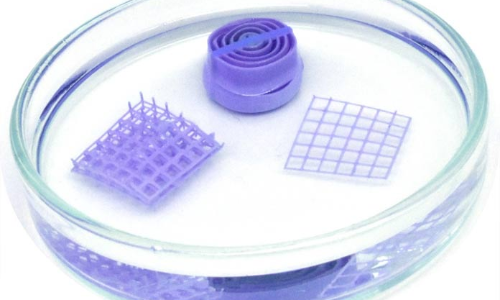Low-cost 3D-printable water sensor developed

Scientists say they have developed a lowcost, flexible and nontoxic plasticcomposite sensor that can detect tiny amounts of water
Berlin: Scientists say they have developed a low-cost, flexible and non-toxic plastic-composite sensor that can detect tiny amounts of water.
The 3D printed sensor changes its colour from purple to blue in wet conditions, said researchers led by Pilar Amo-Ochoa from the Autonomous University of Madrid (UAM) in Spain. The research, described in the journal Advanced Functional Materials, opens the door to the generation of a family of new 3D printable functional materials.
In many fields, including health, food quality control, environmental monitoring and technical applications, there is a growing demand for responsive sensors that show fast and simple changes in the presence of specific molecules, and water sensors are among the most commonly used. "Understanding how much water is present in a certain environment or material is important," said German Electron Synchrotron (DESY) scientist Michael Wharmby. "For example, if there is too much water in oil, it may not lubricate machines well, and if there is too much water in fuel, it may not burn properly," Wharmby said in a statement.
The functional part of the new sensor material is a copper-based coordination polymer, a compound with a water molecule bound to a central copper atom. "On heating the compound to 60 degrees Celsius, it changes colour from blue to purple," said Amo-Ochoa. "This change can be reversed by leaving it in air, putting it in water, or putting it in a solvent with trace amounts of water in it," Amo-Ochoa said. Using high-energy X-rays, the scientists observed that in the sample heated to 60 degrees Celsius, the water molecule bound to the copper atoms had been removed.
This leads to a reversible structural reorganisation of the material, which is the cause of the colour change. "Having understood this, we were able to model the physics of this change," said Jose Ignacio Martínez from the Institute for Materials Science in Madrid (ICMM-CSIC). The scientists were then able to mix the copper compound into a 3D printing ink and printed sensors in several different shapes which they tested in air and with solvents containing different amounts of water.
These tests showed that the printed objects are even more sensitive to the presence of water than the compound by itself, thanks to their porous nature. In solvents, the printed sensors could already detect 0.3 to 4 per cent of water in less than two minutes. In air, they could detect a relative humidity of seven per cent. If it is dried, either in a water free solvent or by heating, the material turns back to purple. A detailed investigation showed that the material is stable even over many heating cycles, and the copper compounds are evenly distributed throughout the printed sensors, researchers said.
The material is stable in air over at least one year and also at biological relevant pH ranges from 5 to 7, they said. "Furthermore, the highly versatile nature of modern 3D printing means that these devices could be used in a huge range of different places," said Shlomo Magdassi from The Hebrew University of Jerusalem in Israel. He said the concept could be used to develop other functional materials as well.








